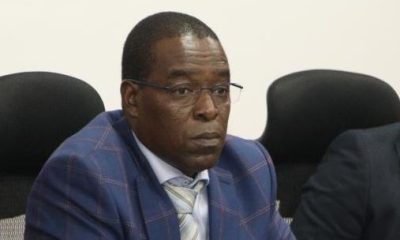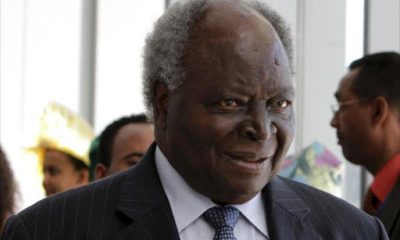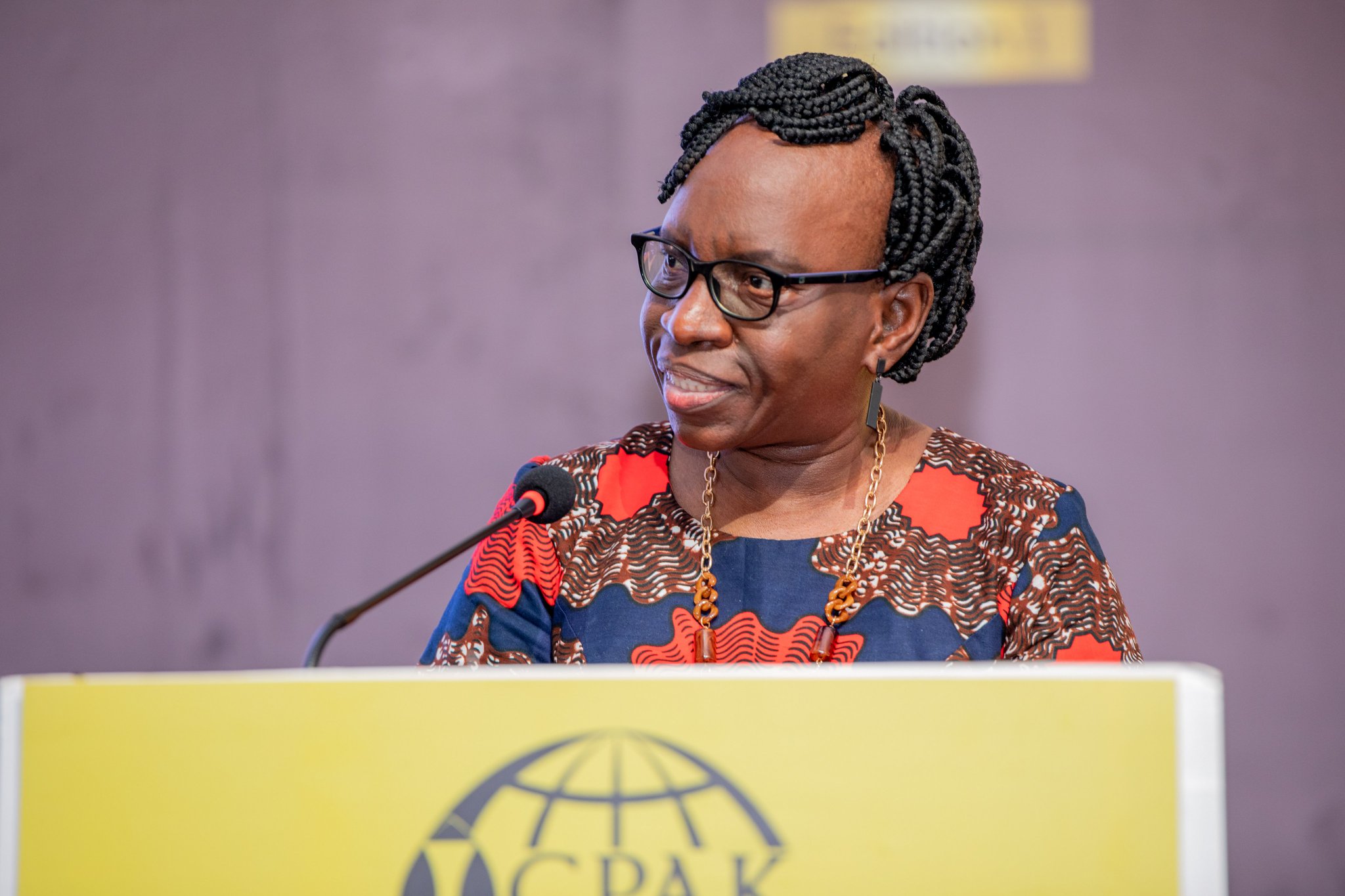Electricity consumers have over the years been overbilled owing to malpractices in the procurement of heavy fuel oil that thermal power producers use to generate electricity.
A forensic audit on the procurement of heavy fuel oil (HFO) by the thermal Independent Power Producers (IPPs) by the Auditor General shows that consumers paid billions of shillings over and above what they should have paid in compensating the power producers for what they used in acquiring the fuel.
The money that thermal IPPs spend on fuel is usually passed to consumers and is captured in the power bill as the Fuel Cost Charge (FCC). The charge has been blamed as among the factors that have sustained high power prices in the country.
The audit, covering the period between 2018 and 2021, unearthed instances where IPPs overlooked fuel suppliers with low bids and instead award contracts to those with higher bids, sometimes more than double what had been the lowest bid.
The higher costs were borne by consumers. They would also claim to have used higher amounts of fuel when billing Kenya Power while the actual consumption was lower.
Auditor General Nancy Gathungu now wants the IPPs penalised and also made to return the money that is deemed to have been surcharged on consumers irregularly.
At the same time, she has recommended action to be taken against Kenya Power staff mandated with overseeing HFO purchases among IPPs for failing to protect consumers.
Kenya Power, the report noted, has a responsibility of scrutinising the procurement of HFO by IPPs but failed to fulfil this mandate.
“The instances of irregularities warrant severe assessment of gross misconduct and action to be taken on the responsible parties,” said the Auditor General in the report that was recently presented to Parliament.
The forensic audit was triggered by the recommendations of the Presidential Task Force on the Review of Power Purchase Agreements (PPAs).
The John Ngumi-chaired task force had raised alarm after review of the costs incurred by different thermal IPPs when buying HFO.
It noted a huge variance in the different players paid for the same commodity and purchased under near-similar conditions.
For instance, over 2019, the task force found out that one IPP would buy a tonne of HFO at $526 (Sh73,640 at current exchange rates) on average while another would buy the same at $1,037 (Sh145,180).
The task force recommended a forensic audit of HFO procurement by the IPPs over the five years to 2021 as well as closer supervision by Kenya Power of the power producers in their fuel procurement processes.
Fuel is among the major cost areas for Kenya Power, which paid Sh28 billion in the year to June 2022 to the different power producers operating thermal plants.
Among the areas of concern that the Auditor General identified following the forensic audit were instances where IPPs are claimed to have bought overpriced HFO.
According to the audit, three IPPs awarded separate tenders to Gulf Energy between 2013 and 2019 in which the firm had allegedly overpriced the HFO it sold to the power producers.
The result is that the electricity generators spent a combined Sh1.3 billion more than they would have spent had the IPPs worked with fuel suppliers that had offered the lowest bids. The cost was passed on to electricity consumers.
“Irregularities noted include the following… procurement award of the HFO supply tenders to Gulf Energy who were not the lowest bidders and without any justification led to losses that would have been avoided,” said the report.
Gulf Power, according to the report, incurred a loss of $2.93 million (Sh410 million at current exchange rates), Thika Power ($4.44 million – Sh616 million) and Triumph Power ($1.8 million – Sh252 million).
The report also noted that there was a conflict of interest in Gulf Power – the IPP – buying HFO from Gulf Energy – the oil marketing company – with Gulf Energy owning 80 per cent of Gulf Power when some of the tenders were awarded.
The Auditor General noted instances where Gulf Energy would be contracted to supply the fuel – not just to Gulf Power but also to other IPPs – even where there were other oil marketers that had bid at lower prices.
“In the case of the 2019 Thika Power Tender, Total and RH Devani were the lowest bidders but were disqualified. The tender evaluation report stated that the Gulf Energy bid was the lowest bidder, despite evidence to the contrary,” said the Auditor General.
“Gulf Power, Triumph Power and Thika Power should be held responsible for the losses occasioned through the procurement of more expensive HFO despite the availability of cheaper qualified fuel suppliers. Such actions should include recovery measures,”
“Action should be taken against KPLC staff tasked with oversight of the procurement process for failure to protect interests of electricity consumers in the irregular award of HFO supply tenders to Gulf Energy.”
The Auditor General also took issue with a claim for compensation of more than Sh1 billion by two oil marketers that were left holding huge stocks of HFO following a 2015 review of regulations.
In an April 2016 gazette notice, the Energy and Petroleum Regulatory Authority (then operating as the Energy Regulatory Commission) dropped requirements for IPPs to hold minimum HFO security stocks. This was supposed to ensure security of energy supply in the country.
KenGen had in 2015 commissioned a 280 megawatt (MW) geothermal plant that reduced dispatch from thermal power plants to 12 per cent from an earlier 33 per cent.
Hold huge stocks
This meant that IPPs no longer needed to hold huge stocks of HFO. According to the Auditor General, since the IPPs no longer had to tie this working capital, freeing up of the money that had been tied to the stocks benefited the companies but this was not passed on to consumers.
Instead, consumers had to pay fuel suppliers that were now stuck with huge stocks of HFO.
“Following the low dispatch in 2015 and 2016, Gulf Energy and Vivo Kenya who were the fuel suppliers for Kengen Kipevu III, Iberafrica, Gulf Power, Triumph Power, Thika Power and Tsavo Power wrote to ERC (which has since rebranded to Epra) claiming compensation of $9.75 million equivalent to Sh1.01 billion at an exchange rate of Sh103.67, citing additional financing costs,” noted the audit report.
“After deliberations, ERC approved the request and the amount was recovered from electricity consumers effective July 1, 2017. There was no justification for the payment.”
“There was also no basis for the fuel compensation since the Fuel Service Agreements were signed between the fuel suppliers and the IPPs and neither the government nor KPLC had guaranteed fuel uptake from the suppliers. All fuel orders from the IPPs were to be based on non-binding monthly estimates depending on the project energy dispatch levels.”
Kenya Insights allows guest blogging, if you want to be published on Kenya’s most authoritative and accurate blog, have an expose, news TIPS, story angles, human interest stories, drop us an email on [email protected] or via Telegram

 Investigations2 weeks ago
Investigations2 weeks ago
 Investigations2 weeks ago
Investigations2 weeks ago
 Investigations2 weeks ago
Investigations2 weeks ago
 Investigations1 day ago
Investigations1 day ago
 Investigations2 weeks ago
Investigations2 weeks ago
 Investigations2 weeks ago
Investigations2 weeks ago
 Investigations2 weeks ago
Investigations2 weeks ago
 Business1 week ago
Business1 week ago



























